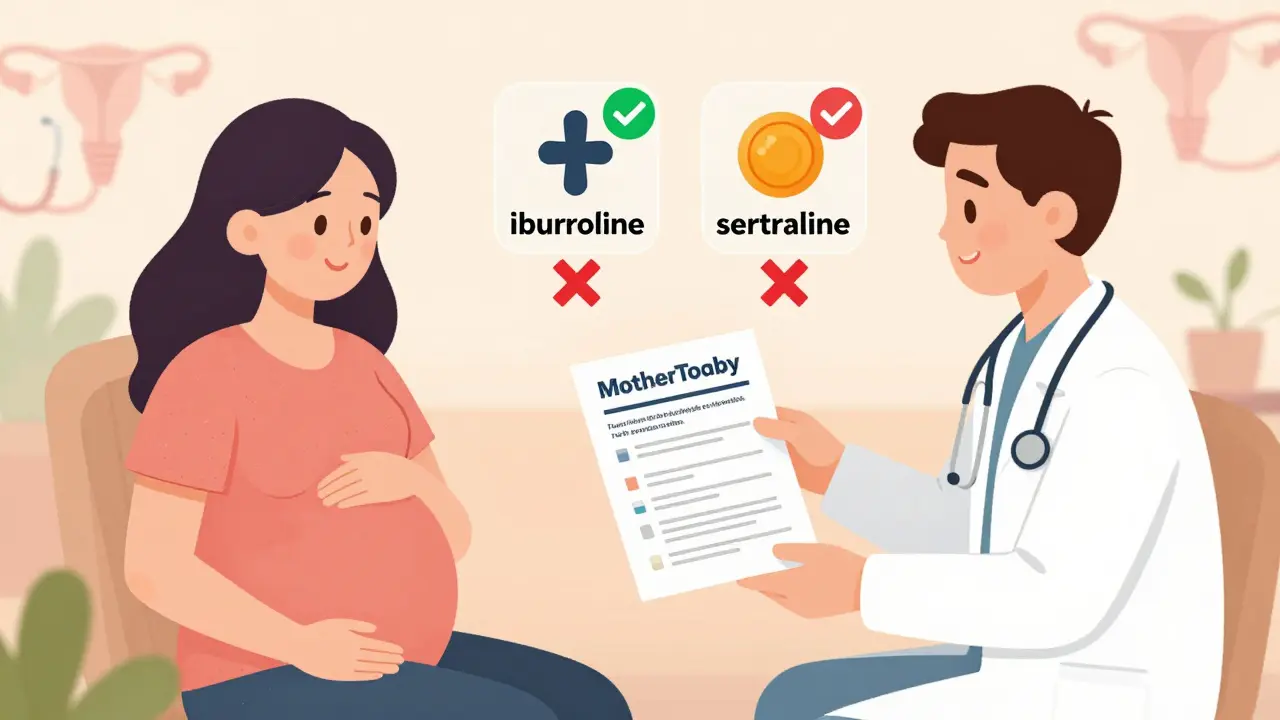Reproductive Health – Practical Guides for Fertility and Hormone Balance
Looking for clear answers about fertility, hormones, or the best way to boost reproductive health? You’re in the right spot. This page gives you straight‑forward info you can use today, without medical jargon or endless scrolling.
Alternative Fertility Treatments in 2024
If Clomid isn’t working for you, there are several other options to consider. Letrozole, a medication usually used for breast cancer, can trigger ovulation with fewer side effects for many women. Metformin, originally designed for diabetes, helps with insulin resistance and often improves ovulation in PCOS patients. Black Cohosh, a herbal supplement, is popular for those who prefer a natural route, though results vary.
Each alternative works a bit differently. Letrozole blocks estrogen production, which signals the body to release more follicle‑stimulating hormone (FSH). Metformin lowers blood sugar and insulin spikes, which can keep the ovaries from over‑producing male hormones. Black Cohosh may mimic estrogen in the brain, nudging the pituitary gland to start the ovulation cycle.
When you compare them, think about cost, side effects, and how they fit your lifestyle. Letrozole is prescription‑only, but many find the dosage easy to manage. Metformin is cheap and widely available, yet it can cause mild stomach upset at first. Black Cohosh is sold over the counter, but you should watch for interactions with other meds.
How to Choose the Right Option
Start with a conversation with your doctor or a fertility specialist. Bring a list of any other medications you take, and be ready to discuss your medical history. Ask about success rates for each treatment in people with similar profiles.
Track your cycle. Use a simple app or a paper calendar to note when you start a medication, when you notice any side effects, and when you get a positive pregnancy test. This data helps you and your doctor see what’s working.
Don’t overlook lifestyle factors. A balanced diet, regular moderate exercise, and stress reduction can boost the effectiveness of any treatment. Even small changes, like adding more leafy greens or cutting back on caffeine, may tip the scales.
Finally, give yourself time. Most fertility drugs need at least one full menstrual cycle to show results. Patience can be tough, but rushing into another medication often leads to confusion rather than clarity.
Beyond medication, the reproductive health category covers a lot of ground. You’ll find tips on hormone balance, birth control options, and what to expect during common procedures like IUI or IVF. Each article is written to be easy to read and to give you practical steps you can try right away.
Remember, reproductive health is personal. What works for a friend may not be the best for you. Use the information here as a starting point, then tailor it to fit your own body and goals.
If you’re ready to explore alternatives to Clomid or simply want to learn how to support your hormones naturally, keep scrolling. The next sections dive deeper into dosage tips, potential side effects, and real‑world stories from people who’ve been where you are now.
Take the first step, ask the right questions, and trust that you can find a path that fits your life. Your reproductive health journey starts with knowledge – and you’ve just gotten a solid dose of it.

Polycystic Ovary Syndrome: Understanding Hormonal Imbalance and Fertility Treatment
Posted by Desmond Carrington on 17/02/26
PCOS is the leading cause of infertility in women, driven by hormonal imbalances like insulin resistance and high androgens. Learn how lifestyle changes, letrozole, and metformin can restore ovulation and improve fertility outcomes.

Thalidomide and Teratogenic Medications: A History of Tragedy and Modern Safety Lessons
Posted by Desmond Carrington on 26/01/26
Thalidomide caused thousands of birth defects in the 1950s and 60s, leading to major drug safety reforms. Today, it's used under strict controls to treat cancer, but its history teaches vital lessons for pregnancy medication safety.

How to Discuss Pregnancy and Breastfeeding Plans for Medication Safety
Posted by Desmond Carrington on 8/01/26
Learn how to have clear, evidence-based conversations with your provider about medication safety during pregnancy and breastfeeding. Avoid risks, make informed choices, and use trusted resources like MotherToBaby and LactMed.

Safe Migraine Treatments During Pregnancy and Lactation: What Works Without Risk
Posted by Desmond Carrington on 27/12/25
Learn safe, evidence-based migraine treatments during pregnancy and breastfeeding. Discover which medications are safe, which to avoid, and effective non-drug options backed by research.

Pregnancy Backache: Causes, Relief Tips & When to See a Doctor
Posted by Desmond Carrington on 18/10/25
Learn why backache shows up during pregnancy, safe ways to ease the pain, and clear signs that demand a doctor’s visit.

Vaginal Surgery Myths Debunked: Facts You Need to Know
Posted by Desmond Carrington on 1/10/25
Clear, expert‑backed answers debunk five common myths about vaginal surgery, covering safety, recovery, sexual function, age limits, and surgeon expertise.

Breast Disease & Fertility: Essential Facts for Women
Posted by Desmond Carrington on 29/09/25
Learn how breast disease, including cancer, impacts fertility and what steps women can take to preserve or regain reproductive health.

Exploring Alternative Fertility Treatments to Clomid in 2024
Posted by Desmond Carrington on 18/10/24
In 2024, exploring alternative treatments to Clomid for ovulation induction is crucial for those seeking fertility solutions. Various alternatives, including Letrozole, Metformin, and Black Cohosh, offer different mechanisms and benefits for inducing ovulation. Each alternative has its potential advantages and drawbacks, providing a range of options for different individual needs and conditions. This article offers a comprehensive look at these alternatives, helping readers make informed decisions about fertility treatment options.

